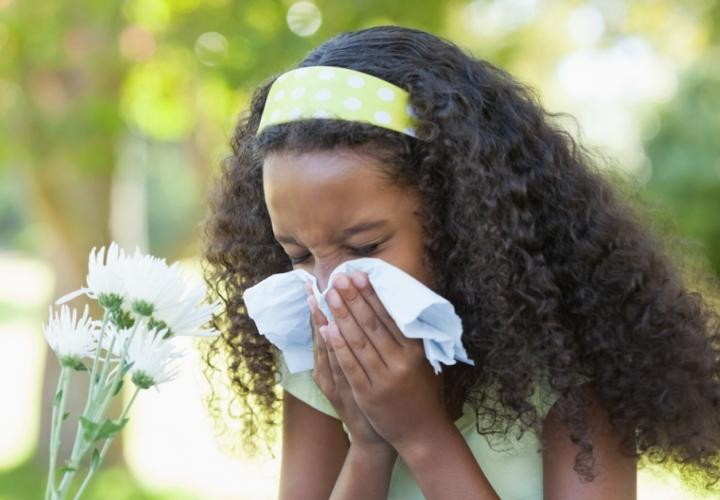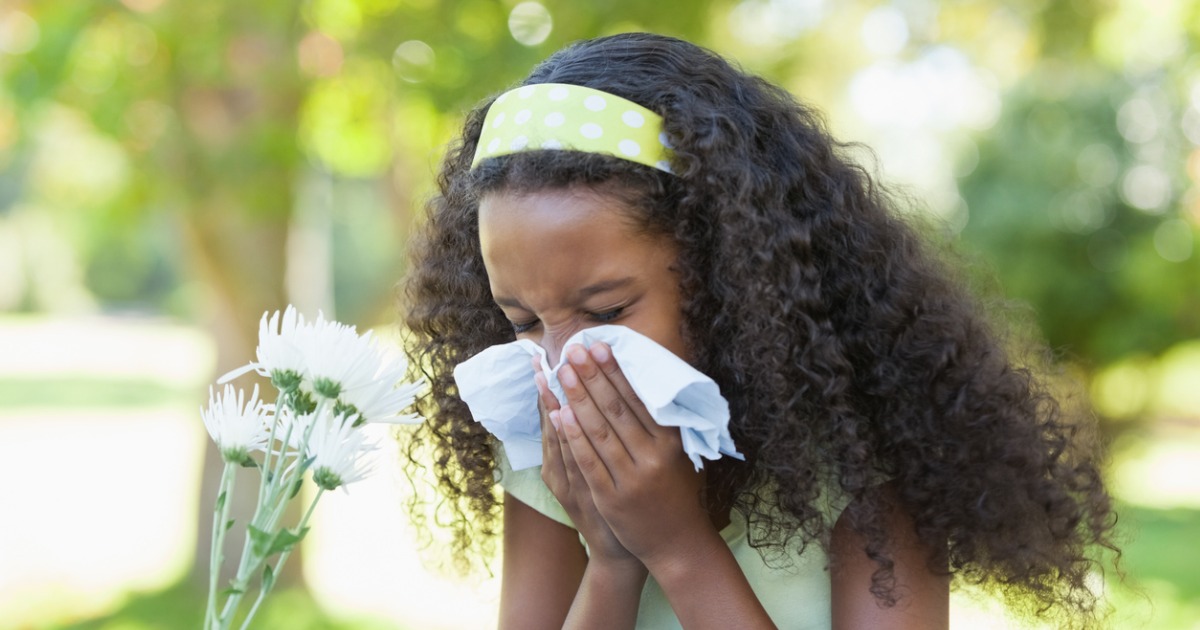How do I know if my child has nasal allergies?
Great question! Most of the time, allergies happen in the fall or spring (seasonal allergic rhinitis), but it can also take place year ’round (perennial allergic rhinitis). The hallmark signs of allergic rhinitis in children are stuffy nose, sneezing, runny and itchy nose, itchy and watery red eyes, and postnasal drip.
Does my child have allergies or just a cold?
It can be hard to say with so many illnesses going around from shifting patterns due to the COVID-19 pandemic. Even though both nasal allergies and colds share symptoms, there are some differences to look out for.
Your child might have seasonal nasal allergies if they have:
- The above symptoms and they last longer than 10 days, which is the average course of a cold.
- Symptoms that flare up during certain times of the year, like when leaves start to fall or when the pollen count is high.
- One or more of the following symptoms: clear nasal discharge (not thick or discolored) stuffy nose, itchy nose, or sneezing.
- Itchy skin or hives.
- Noisy nasal breathing like a wheezing-type noise from the nose.
>Related: Asthma in Kids- What Should I Know?
Your child might have a cold or other respiratory infection like the flu or COVID-19 if they:
- Have a productive cough—this could mean thick or mucous-y, or dry or bark-y.
- Have a fever along with their cold symptoms.
- Have diarrhea, vomiting, body aches or other symptoms. Ask your pediatrician to rule out COVID-19 or influenza.
>Related: Should I Worry about My Kid’s Fever?
So, while allergies can sometimes feel like a cold and make kids generally uncomfortable, the key takeaway is allergies usually linger a lot longer and do not cause symptoms like fevers or a thick, phlegmy cough.

